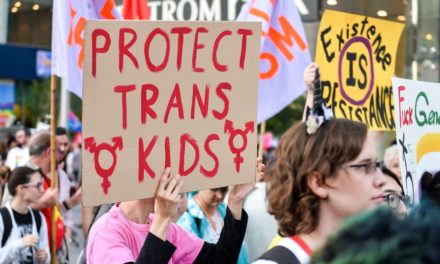Memphis is in trouble.
There, we’ve said it. Please tell us we’re wrong.
We have traditionally been dependable cheerleaders for Memphis, but right now, we’re hard-pressed to feel like our team is even in the major leagues, much less competing there.
This jolt of reality slapped us in the face when we read Forbes’ always influential rankings of the “Best Places: 200 Places Rated For Business.”
It wasn’t pretty.
Sometimes in Memphis, it’s as if we’re the city equivalent of the frog sitting in the pot on the stove as the water gets warmer and warmer until it’s boiled to death.
We rationalize away the low Milken ranking or a poor showing on another competitive list. We justify our lack of impact on the “Places Rated” types of rankings. We dismiss a negative Tennessee study or a national Brookings report.
All the while, we’re slowly boiling to death.
The Forbes magazine jolted us off the stove.
Of the 200 largest metro areas, Memphis ranks 98th on the list of “the best metros,” according to Forbes. As a wake-up call, just consider that Nashville is in the top 10 – ranked at # 7.
Span of Success
But it’s not just our natural competitiveness when it comes to Nashville. It’s the impressive performance by a number of places located roughly between the 34th and 36th latitudes.
Besides Nashville, there’s Raleigh at # 2, Durham at # 8, Charlotte at # 24, Asheville at # 24, Knoxville at # 5, Fayetteville at # 9, Little Rock at # 22. Tulsa at # 43 and Oklahoma City at # 13. Albuquerque ranks # 1.
Yet, as your eyes sweep eastward to westward along this “span of success,” there is Memphis, mired down in 98th place. A non-player. A no-show in the big leagues. A non-factor in business decision-making.
And yet, Memphis is not mired down in the bottom rungs in all categories. We’re in the top 10 in one. Unfortunately, it’s the list of the most crime-ridden cities. Only one other metro area in the entire U.S. has more crime. We are # 2.
In the past, I admit that I’ve tried to justify the impact of these devastating crime statistics by pointing at Atlanta, which has always been a hub for economy vibrancy and a magnet for talent, although it’s had one of the highest crime rates in the country for years. Yet, I realize that I’m only whistling in the graveyard.
The difference between Atlanta and Memphis is in national positioning. Atlanta has a news network broadcasting from its headquarters there, it’s constantly held up for the lessons of its economic boom, it has the nation’s most impressive park project under way and it never seems to rest on its laurels.
Information about Memphis comes largely from articles and lists like the one in Forbes. There is little countervailing information about Memphis, so our city becomes defined by the negative, defined by others.
We know it’s not all bad news. Memphis Bioworks Foundation is doing impressive things. St. Jude’s is known for its breakthrough research. FedEx is well, FedEx, and thank God it’s located here (although it has boosted operations in other cities because of workforce issues here). There are some nationally significant innovations on public issues inspired by the philanthropic community. The Memphis Regional Chamber’s new leadership grasps the importance of our city having strategies to attract talent.
Fundamental Problems
That said, the mayor is essentially invisible, emerging periodically to announce that he’s running for reelection and talking about his legacy. Sadly, it seems that the more he talks about his legacy, the worst it gets.
Rather than investing taxes to strengthen our urban core, our elected officials made the choice to take these taxes and use them to pay for sprawl that is financially and socially devastating. In other words, Memphians have been made to pay for the policies that led to the deterioration of their own neighborhoods.
We worry about the infrastructure for a distribution economy when we need to create infrastructure for a knowledge economy at a global scale. We have a propensity for chasing low-wage, low-skill jobs and even rewarding them with tax freezes in an age when cities competing globally are doing it with high-skill workers. We are obsessed with competing with DeSoto County when we need to be considering ways to compete with regions on other continents.
We have no over-arching public policy vision, complete with action steps and measurements. Crime is a good example, where we’re lulled to sleep by the barrage of press releases out of the state attorney general’s office and the lack of leadership from the director of police. No one seems to care that the birthright for young black boys in this city is jail, not college, and that there are ways to deal with the symptoms, not just the causes. Through it all, there’s no demand for action or attention from City Hall.
List after list of urban indicators paints the picture of Memphis as a troubled city, and we continue to drop in key benchmarks.
Boiling Water
So, why did we feel the water beginning to boil?
We just attended a national meeting of urban leaders for about two dozen cities. They talk of innovation, they talk of new public policy, they talk about new thinking and they describe bold, new actions that they’re taking.
They look blankly when Memphis comes up in conversation. It’s as if either Memphis doesn’t exist on their landscape of progressive cities, or they’ve already given us up for dead.
And yet, there much that can be done to turn things around.
But the first thing we have to do is to realize that the water is boiling.



